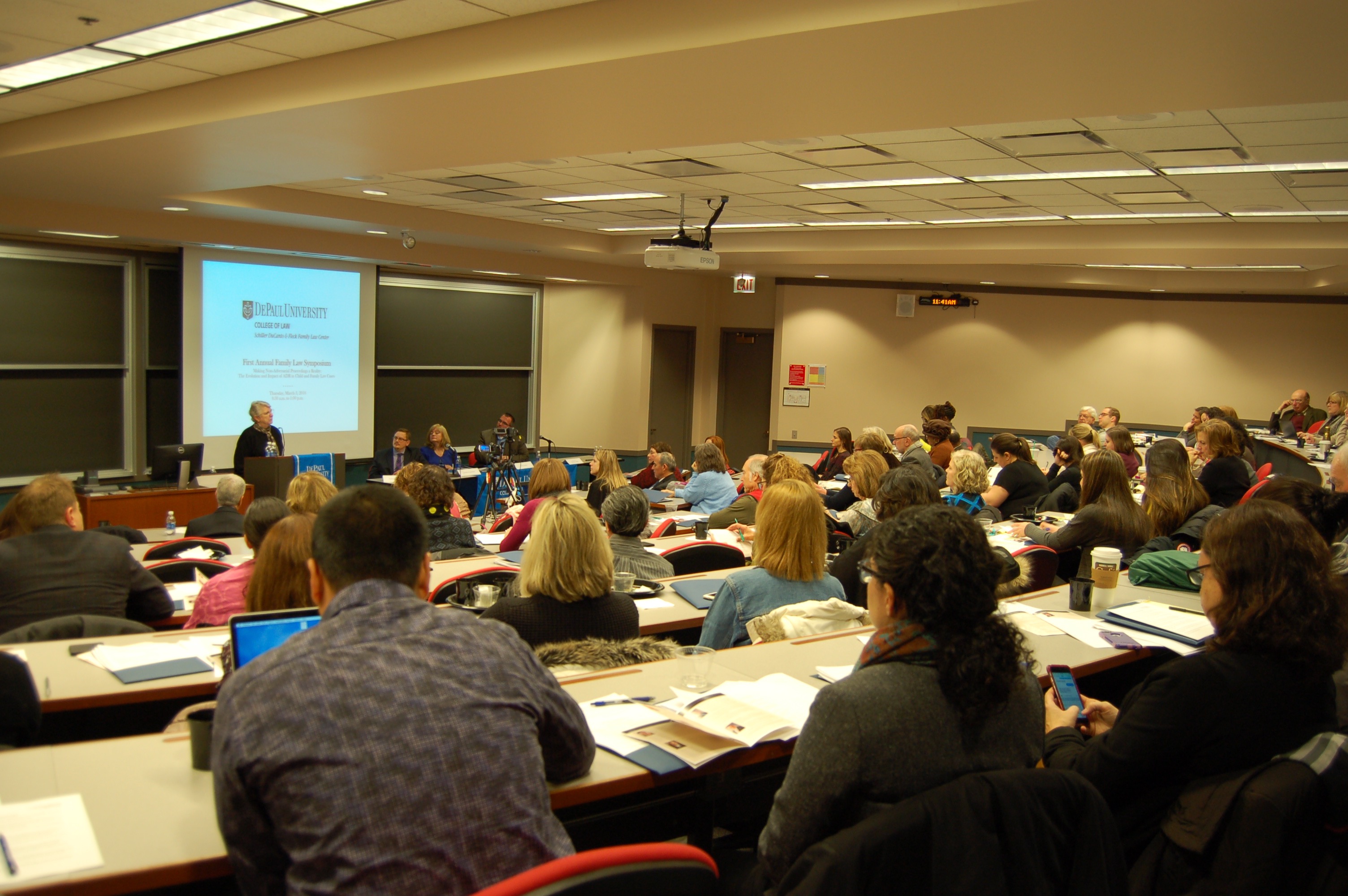
The
Schiller DuCanto & Fleck Family Law Center hosted a series of expert panels on alternative dispute resolution (ADR) for its first annual family law symposium, “Making Non-Adversarial Proceedings a Reality: The Evolution and Impact of ADR in Child and Family Law Cases.
”
For a room filled to capacity, panelists discussed the challenges and successes of mediation and arbitration in child and family law cases, as well as the differences between financial mediation and mediation to resolve parenting issues. Speakers also expounded on emerging models for children and families, exploring topics such as the value of restorative justice and serving as a parenting coordinator. Many touted ADR methods as highly effective in upholding a productive, non-adversarial environment.
“Our goal is peace,” summed up panelist Sandra Crawford, an attorney, mediator and trainer who discussed collaborative law at the symposium. Crawford covered the spectrum of conflict resolution and highlighted core concepts of the marital dissolution process—from the importance of a disqualification agreement to attorney roles as negotiator, navigator and educator.
Featured speaker, Judge Grace G. Dickler, talked about her efforts in getting the local rules for the Circuit Court of Cook County revised to include provisions relating to financial mediation in divorce cases. She described the committee that she created to draft the proposed revisions and the impact that the new rules have had on reducing conflict in family law matters.
 Judge Martha Mills discusses restorative justice at the first annual family law symposium.
Judge Martha Mills discusses restorative justice at the first annual family law symposium.Other symposium panelists included restorative justice pioneer Judge Martha Mills, who discussed the benefits of the circle process, as well as the original case that led to the establishment of her restorative justice pilot program in the Cook County Parentage and Child Support Court. “Children need families more than they need courts,” Mills advocated.
Closing speaker, Professor Andrew Schepard, talked about an interdisciplinary center being used in Denver where families can gain access to a range of services when getting divorced, including mediation, financial planning assistance and therapy. He emphasized the high satisfaction rates and lower stress reported by parents and children who used the center rather than pursuing a traditional divorce via the courts.
“The strong turnout at this event demonstrates that this topic—the use of ADR in family law matters—is something that attorneys and other professionals helping families in conflict are interested in learning more about and applying,” said Cheryl Price, symposium organizer and executive director of the Schiller DuCanto & Fleck Family Law Center. “All of the presenters did a fantastic job describing why these alternative models can be good for families pursuing divorce and separation and offering ideas for moving forward to make these models more ubiquitous in the field of family law. The audience greatly enjoyed the discussion and had excellent questions for the panelists. The center was very pleased to be able to offer a symposium on this very important topic.”